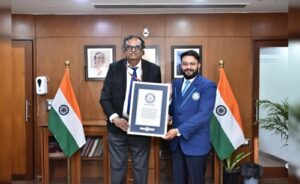Maulana Abul Kalam Azad was India’s first Minister of Education, serving from August 15, 1947, to February 22, 1958. A prominent freedom fighter, Azad was instrumental in shaping India’s educational policies post-independence. Here’s more about his contributions and legacy.
Played a pivotal role in establishing the Indian Institutes of Technology (IITs) and the University Grants Commission (UGC).Advocated for the creation of institutions like the Sangeet Natak Akademi, Sahitya Akademi, and Lalit Kala Akademi to promote cultural and artistic endeavors.
Played a pivotal role in establishing the Indian Institutes of Technology (IITs) and the University Grants Commission (UGC).Advocated for the creation of institutions like the Sangeet Natak Akademi, Sahitya Akademi, and Lalit Kala Akademi to promote cultural and artistic endeavors.
Encouraged scientific research and advancements.Helped in the establishment of the Council of Scientific and Industrial Research (CSIR) and other premier scientific institutions.
Championed the use of Hindustani as a language to bridge gaps between communities.Emphasized the importance of education in fostering unity and secularism.
Advocated for adult education programs and increasing literacy rates among women, emphasizing their role in national progress.
India observes November 11 as National Education Day every year in his memory. Azad was a prolific writer and thinker, with notable works like India Wins Freedom, offering a detailed account of the independence struggle.







